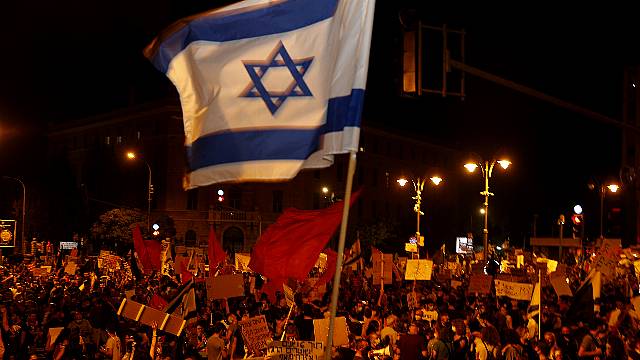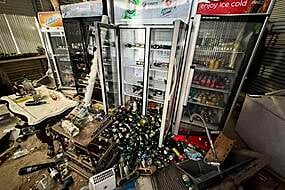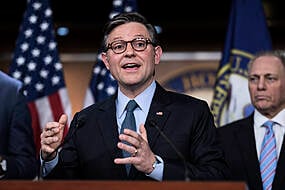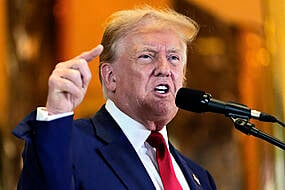Thousands of people demonstrated outside Mr Netanyahu’s official residence in Jerusalem and hundreds gathered in a seaside park in Tel Aviv, demanding the premier’s resignation and slamming his response to the crisis.
For the first time since the wave of protests began weeks ago, hundreds also assembled outside Mr Netanyahu’s private home in the upmarket coastal town of Caesarea, where heavy security greeted them.
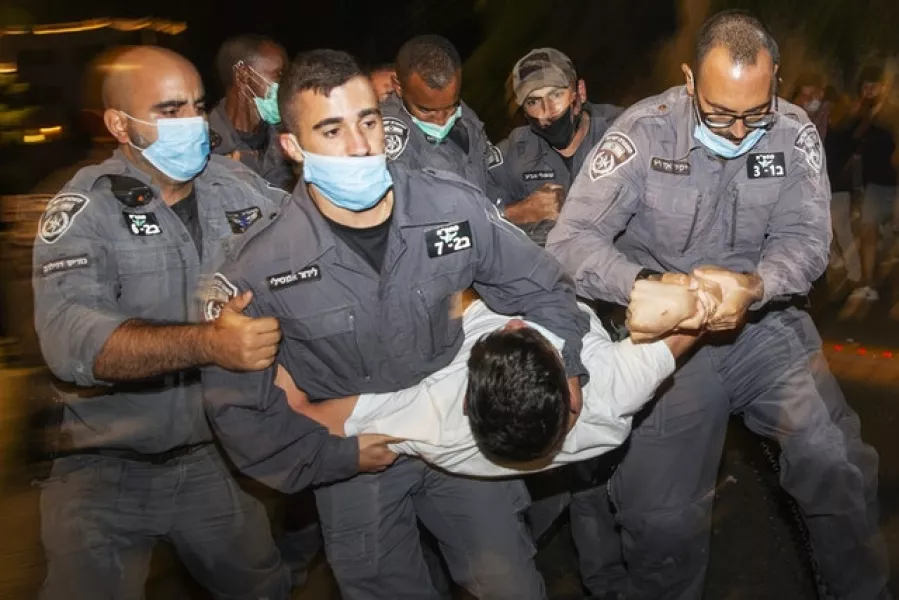
Demonstrators lining bridges and intersections waved black flags, the symbol of one of the movements behind the protests that is demanding the prime minister’s removal.
The protests are emerging as among the biggest challenges to Mr Netanyahu’s lengthy rule since demonstrations over the cost of living in 2011 drew hundreds of thousands to the streets.
They come after what critics say is the premier’s fumbling of the Covid-19 response and in the shadow of his corruption trial, which resumed earlier this month.
At a press conference last week which coincided with protests, Mr Netanyahu addressed the surging protests, warning demonstrators: “Do not drag the country into anarchy, violence, vandalism.”

Critics say police have been heavy-handed in trying to clear out the protests, using water cannons to drive them out and in some cases causing injury.
Police say that protesters who ignore calls to disperse are removed to restore order.
Police fired water cannons on protesters at the Jerusalem protest and said 12 people were arrested there for being involved in disturbances.
Two other people were arrested in separate locations for attacking protesters with pepper spray and a knife.
Israel appeared to have contained its first wave of coronavirus infections in the spring, with Mr Netanyahu boasting that Israel was among the most successful countries in the world in its response with the virus.
But what critics say was a hasty and ill thought-out reopening sent new cases soaring, with Israel now claiming one of the world’s highest infection rates, adjusted for population.
The government, formed with the intention of focusing on combating the virus, has moved slowly and haltingly to contain the new outbreak.

Israel has since reimposed some restrictions after an extended lockdown in the spring paralysed its economy.
Unemployment has since jumped to more than 20%, from around 3.9% before the outbreak, and anger has grown over the government’s financial assistance plans, which have been criticised for providing those in need with a pittance or nothing at all.
